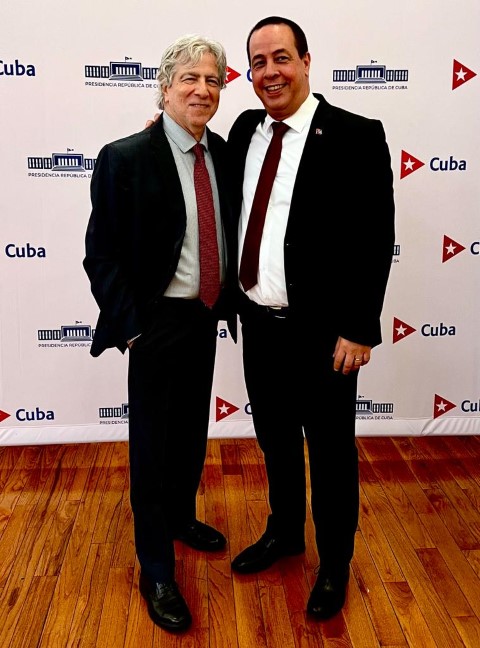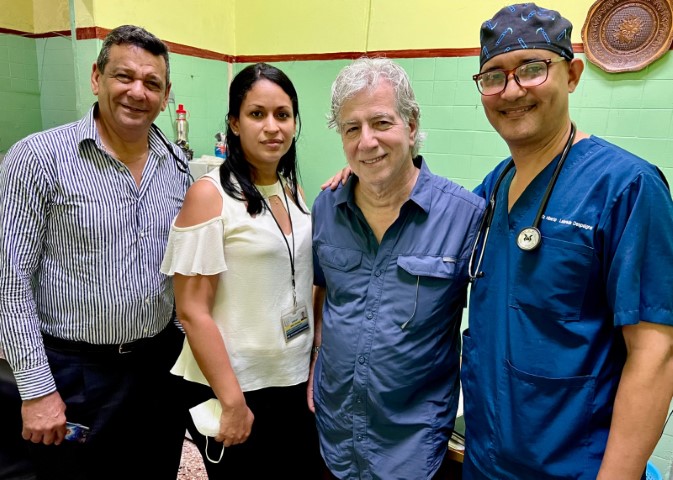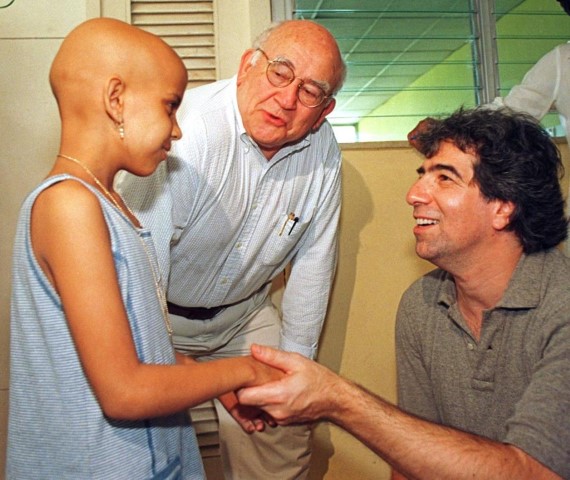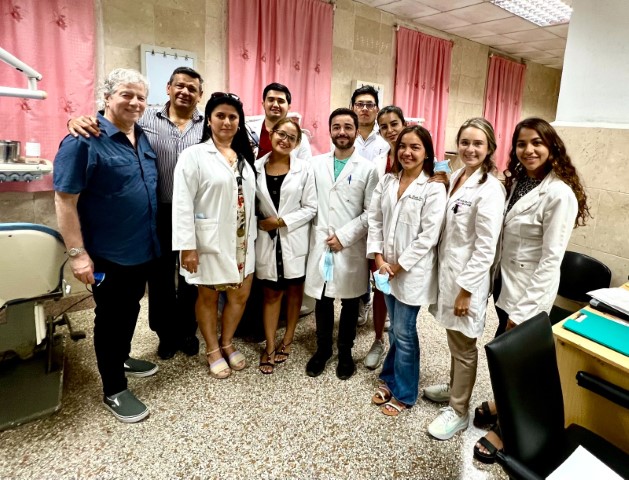By Elizabeth Borrego Rodríguez
Prensa Latina’s chief correspondent at the United Nations
The executive director of the non-governmental organization Global Health Partners (GHP) considers that Cuba is “a different case” with a view to establishing donations for its health system, precisely due to the blockade imposed by the Government of the United States for more than 60 years.

GHP is a solidarity organization with a very strong anti-blockade focus that has worked with public health institutions in Latin America and the Caribbean to help build self-sustaining health care delivery systems.
However, after three decades of exchange with the Cuban Ministry of Public Health, the work with Cuba makes it a particular destination.
“Cuba has a very different circumstance. In most of the Latin American countries that we work, there is a lack of skills. Very different than Cuba, where you’ve got a very educated and very knowledgeable group of doctors and health care workers,” he told Prensa Latina.

Amid the pandemic, the organization prepared a campaign that managed to send six million syringes to Cuba to support immunization against Covid-19 with its own vaccines.
“Cuba had a unique situation, it had its own vaccines but it needed syringes and the goal of vaccinating its entire population. That was probably our most important job in Cuba and it was an honor to be able to do it,” he acknowledged.
But after overcoming the pandemic, the country still faces enormous challenges in accessing the purchase of equipment, supplies and medicines in the international market, which impacts both health care and GHP’s attempts to support.
For this reason, the word blockade is frequent when trying to explain the obstacles to sending donations directly to Cuba.

“The extraterritorial nature of the sanctions confirms that this is a blockade and not just an embargo,” he stressed.
THE DIFFICULT ROUTE OF AID FOR CUBA
In 1994, Bob Schwartz traveled to Cuba for the first time during the so-called Special Period, which marked one of the most complex contexts for the national economy.
So collaboration began with basic medicines and medical supplies, a very simple project with antibiotics, disposable products; that is, gloves, syringes and other supplies sent as donations from the United States, he recalled.
Over time, GHP’s relationship in the country transformed as Cuba’s needs changed.
“We have always been proud of how quickly we adapted and were in exchange with Cuba’s Ministry of Public Health,” he commented.
Decades later, the country managed to produce more than 85 percent of its generic medicines and GHP supported with other products such as medicines for rare diseases, surgical equipment and other priorities.
However, the arrival in power of Donald Trump (2017-2021) and the adoption of 243 additional measures to the long list of provisions against Cuba made the context more complex.
“Cuba’s inclusion on the list of sponsors of terrorism has made it even more difficult for us and for Cuba with respect to global partners,” he explained.
Since then, the purchase of equipment, donations and shipping it to Cuba have become increasingly complicated, Schwartz lamented.
Among other obstacles, he recognized the lack of commercial air transportation from US territory, which forces them to use “very creative routes” to bring medicines to the Cuban capital.
“We have moved refrigerated shipments from New York to Brussels and then to Madrid to reach Havana, which takes several days,” he said.
In a normal relationship, we could fly directly from the United States in three hours and even take it by sea, but that is not the case.
Schwartz lamented the immobility of the Joe Biden administration with respect to Cuba, forcing the organization to rely on increasingly slow export licenses and hindering the acquisition of necessary products in the country.
“It is very difficult for us to buy from companies that simply do not want to sell to us knowing that the product will go to Cuba,” he lamented.
On the other hand, GHP does not need government permits to send supplies to Mexico, Guatemala, Nicaragua or Bolivia, some of the nations where it maintains similar programs.
“It is much more agile and there are many options by air or sea lines, which does not happen with Cuba.”
A FENCE WITHOUT EXCEPTIONS
Even though GHP’s work focuses on donations and health aid, this does not represent any advantage to circumvent the blockade policies.
The hundreds of provisions include an exception for shipments for individuals or nonprofit organizations, which does not occur for large donors to the Ministry of Public Health. Added to this is Cuba’s inability to obtain diagnostic equipment from American manufacturers and the refusal of other entities to trade with Cuba for fear of so-called sanctions.
“I’ve sat with mothers and fathers who are watching their children die from cancers that would and could be treatable, but for the fact that Cuba can’t purchase chemotherapy drugs from US companies,” Schwartz confessed in this regard.
The same happens with pacemakers and batteries for cardiac patients, which are impossible to acquire because they have parts of US origin. In a perfect future, Cuba could get the drugs and supplies, diagnostic equipment, chemotherapy drugs that children need to be able to live only if relations were normal, he added.
The GHP executive director highlighted that for more than three decades, the majority of members of the United Nations have approved the resolution that calls for the end of the blockade against Cuba.
However, the current White House administration does not seem interested in any changes despite the global demand from governments, organizations and activists and the US president’s own electoral promises.
“I would like to think I’m wrong there and that at some point pressure from the American public will push them to change his policy that is just immoral and illegal,” Schwartz stressed.
“I certainly hope that this resolution at the UN will bark a sea change for the Biden administration. I hope they hear what the world was saying,” he stated.
jg/arb/ebr










